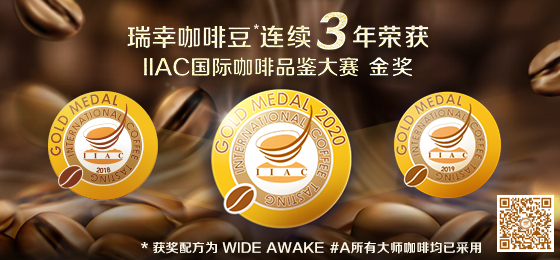Luckin Coffee fabricates financial statements? File for bankruptcy protection? Ruixing's business development model of raw coconut new products
A year after delisting from Nasdaq because of an accounting scandal, Luckin Coffee, a Chinese coffee chain, released a restatement of its 2019 financial statements on June 30, its first since it admitted to fabricating a deal in April 2020.
In the statement, Ruixing confirmed for the first time that it misstated its annual costs and expenses by 1.34 billion yuan ($206.61 million), as well as its revenue of 2.12 billion yuan. The chain's net income in 2019 was 3.025 billion yuan, an increase of 260 percent over the same period last year, according to the filing. While this sounds like an exciting figure, it pales in comparison to the 500 per cent annual revenue growth reported by the company before the fraud scandal. On the other hand, Lucky's expenditure is twice that of the current year's income, with an annual loss of 3.212 billion yuan. The sustainability of its high growth but money-burning model has been questioned.

From the darling of investors to the market pariah, Luckin Coffee's history is like a roller coaster. Luckin, founded in 2017 by entrepreneurs Charles Lu and Jenny Qian, was born with a silver spoon in its mouth amid China's technology investment boom. Because its business is built around mobile applications, the start-up positioned itself as a technology company and raised hundreds of millions of dollars from well-known investors including 喜悦 Capital, BlackRock and Singapore's sovereign wealth fund GIC.
The upstart is eager to challenge Starbucks' dominance in China, a tea-drinking country that has only recently begun to taste the aroma of coffee. It rewards new users of its app with vouchers for free coffee and offers daily discounts to reduce the price of a large latte to 9 yuan, or $1.39-about 1/3 of the price tag for a similar Starbucks drink.

The Xiamen-based company's strategy of actively offering discounts seems to have worked, boosting its national popularity in a short period of time. By December 2018, a year after its establishment, the chain had opened 2000 stores in Beijing, Shanghai and other Chinese cities, selling more than 85 million cups of coffee to nearly 12 million consumers. In May 2019, the energetic Chinese challenger Starbucks successfully launched a $561 million IPO in the United States.
Unfortunately, Lucky's glory days did not last. In April 2020, the company admitted to misstating sales of about 2.2 billion yuan in 2019, making it a blockbuster. The shocking announcement brought Luckin Coffee's explosive growth to an abrupt end. The company's shares are delisted from NASDAQ. China's Ministry of Finance imposed an undisclosed fine on Luckin Coffee. The Securities and Exchange Commission fined him $180 million to resolve fraud charges. In February, the company filed for bankruptcy protection.
But the scandal did not knock Luckin Coffee out: today, it is still the second-largest coffee chain in China, with sizeable operations in the country's major cities. Its shares currently traded on the pink list have rebounded to nearly $15 a share. The brand continues to attract young Chinese consumers who are about to switch from tea to coffee through a large number of espresso drinks that support Instagram and high-profile marketing campaigns.
How did Ruixing get through the turmoil?
After the outbreak of the scandal, the company carried out a complete restructuring. Company Chairman Mr. Lu, CEO Ms. Qian, Chief operating Officer Liu Jian and other employees who participated in or were aware of the fraud were removed from office. Since then, Guo Jinyi, another co-founder, board member and former acting CEO of Luckin Coffee, has been appointed as the new chairman and CEO.
After a top management reshuffle, Lucky appointed Alvarez & Marsal (Achim), a Cayman Islands-based consulting firm, to oversee the collapse of Lehman Brothers and manage its restructuring. With the end of the rapid rise, Ruixing also promised to stop burning money and raise prices to turn losses into profits. Technode reported that since May, Luckin has allowed its store manager to apply for an increase in the price of each drink to 3 yuan. The company also stopped offering free beverage coupons to first-time buyers.
At the same time, Lucky stepped up promotions for its regular customers to win their loyalty. Graduate student Sarah Wang told Pandaily that the local Ruixing branch of her alma mater, Tianjin University, allows students to get discounts through bulk purchases. "Ruixing will regularly push gifts and coupons to me via text messages," Wang added. "these measures have helped the chain to maintain its appeal to me and my peers."
Lucky currently launches two new beverage lines every month. Its time-tested ability to launch creative products ensures that customers never get bored with the brand. This summer, it launched a new drink that features coconut milk and espresso, shaken together and sprinkled with ice. The refreshing drink, called fresh Coconut Latte, is selling quickly in Ruixing's brick-and-mortar stores and has inspired many social media posts.
Important Notice :
前街咖啡 FrontStreet Coffee has moved to new addredd:
FrontStreet Coffee Address: 315,Donghua East Road,GuangZhou
Tel:020 38364473
- Prev

How long can cold-extracted coffee be stored? the taste characteristics of cold-extracted coffee remain the same. Teaching diagram of cold-extracted coffee making method.
Qianjie told you that it takes 12 to 24 hours of filtration to properly soak the coffee grounds in cold water to produce cold extracted coffee. As it takes a long time to make it at home, when you are making it, you might as well mass produce it and store it for later use. So how long can I drink cold coffee? Like all food and drink.
- Next

Top coffee brands in Honduras recommend COE Cup Coffee Raw Bean auction contest information.
Around 09:30 on July 23, 2021, COE posted a tweet about Honduran coffee beans in 2021. Put forward the new coffee bean species in Honduras this year. I was so scared that I hastened to have a look at the official website. Today, let's follow the editor to take a look at 25 auctioned beans in Honduras in 2021.
Related
- Detailed explanation of Jadeite planting Land in Panamanian Jadeite Manor introduction to the grading system of Jadeite competitive bidding, Red bid, Green bid and Rose Summer
- Story of Coffee planting in Brenka region of Costa Rica Stonehenge Manor anaerobic heavy honey treatment of flavor mouth
- What's on the barrel of Blue Mountain Coffee beans?
- Can American coffee also pull flowers? How to use hot American style to pull out a good-looking pattern?
- Can you make a cold extract with coffee beans? What is the right proportion for cold-extracted coffee formula?
- Indonesian PWN Gold Mandrine Coffee Origin Features Flavor How to Chong? Mandolin coffee is American.
- A brief introduction to the flavor characteristics of Brazilian yellow bourbon coffee beans
- What is the effect of different water quality on the flavor of cold-extracted coffee? What kind of water is best for brewing coffee?
- Why do you think of Rose Summer whenever you mention Panamanian coffee?
- Introduction to the characteristics of authentic blue mountain coffee bean producing areas? What is the CIB Coffee Authority in Jamaica?

